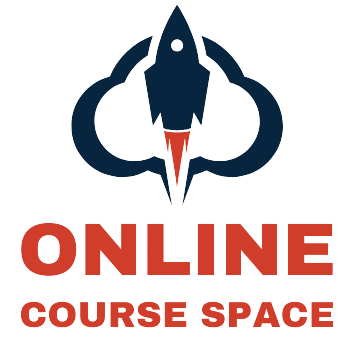App development is the process of creating mobile applications that run on mobile devices, such as smartphones and tablets. App development involves designing, coding, testing, and deploying mobile applications for various platforms, including iOS and Android.
There are many programming languages, development frameworks, and tools available for app development, including:
- Java: Java is a popular programming language for developing Android apps. It’s an object-oriented language that is easy to learn and has a vast community of developers.
- Swift: Swift is a programming language developed by Apple for developing iOS and macOS applications. It’s a modern language that is easy to learn and has many features that make it ideal for mobile app development.
- React Native: React Native is a development framework for building cross-platform mobile applications. It’s based on the React JavaScript library and allows developers to build mobile apps for iOS and Android using a single codebase.
- Xamarin: Xamarin is a development framework that allows developers to build cross-platform mobile applications using C#. It’s ideal for developers who are familiar with C# and want to build mobile apps for iOS, Android, and Windows.
- Flutter: Flutter is a mobile app development framework developed by Google. It uses the Dart programming language and allows developers to build high-performance, cross-platform mobile applications for iOS and Android.
App development involves many stages, including idea generation, wireframing, prototyping, design, development, testing, and deployment. Successful app development requires a good understanding of the target audience, user experience design, and a solid development process.
1. Meta Android Developer Professional Certificate
The Meta Android Developer Professional Certificate is an online training program offered by Meta, a company that provides mobile app development and design services. The program is designed to teach learners how to develop Android applications using Java and the Android SDK.
The program is divided into four courses, each of which focuses on a specific aspect of Android app development:
- Java Programming for Android Developers: This course teaches learners the fundamentals of Java programming, including data types, control structures, and object-oriented programming. The course also covers how to use Android Studio, the integrated development environment for Android app development.
- Android App Components – Intents, Activities, and Broadcast Receivers: This course focuses on the three main components of Android apps: intents, activities, and broadcast receivers. Learners will learn how to use these components to create apps that can send and receive data, launch activities, and respond to system events.
- Android App Components – Services, Local IPC, and Content Providers: This course teaches learners how to use services, local inter-process communication (IPC), and content providers to create apps that can run in the background, share data between apps, and access data stored on the device.
- Capstone Project: The final course in the program is a capstone project in which learners apply their knowledge and skills to develop a complete Android app. Learners will work on a real-world project, from ideation to deployment, and will have the opportunity to receive feedback from industry professionals.
The Meta Android Developer Professional Certificate program is self-paced, and learners can complete it at their own pace. Upon completion of the program, learners will receive a certificate that they can add to their resume and LinkedIn profile. The program is ideal for learners who want to start a career in Android app development or for professionals who want to upgrade their skills.
Key Highlights
- Learn how to create your own Android application including how to build and manage the lifecycle of a mobile app using Android Studio
- Learn coding in Kotlin and the programming fundamentals to be able to create the user interface (UI) and best practices for design
- Beginner-friendly program that is 100% online allowing flexibility to fit in one’s learning schedule
- Prepare for technical interviews for Android developer roles
- Earn a shareable certificate that can be posted on LinkedIn profile
Duration : 8 months, 7 hours per week
Rating : 4.7
Sign up here
2. Meta iOS Developer Professional Certificate (Coursera)

The Meta iOS Developer Professional Certificate is an online training program offered by Meta and hosted on Coursera. The program is designed to teach learners how to develop iOS applications using Swift and Xcode.
The program is divided into five courses, each of which covers a specific aspect of iOS app development:
- Swift Programming for iOS App Development: This course teaches learners the fundamentals of the Swift programming language, including variables, data types, control flow, and functions. The course also covers how to use Xcode, Apple’s integrated development environment (IDE) for iOS app development.
- iOS App Development Basics: This course focuses on the basics of iOS app development, including creating user interfaces, implementing user interactions, and managing data using Core Data.
- Networking, JSON, and Alamofire: This course teaches learners how to use networking in iOS app development, including how to make HTTP requests, parse JSON data, and use the Alamofire framework.
- iOS App Design and Development with Sketch: This course focuses on app design, covering topics such as user interface design, color theory, and typography. The course also covers how to use Sketch, a popular design tool for creating iOS app interfaces.
- Capstone: The final course in the program is a capstone project in which learners apply their knowledge and skills to develop a complete iOS app. Learners will work on a real-world project, from ideation to deployment, and will have the opportunity to receive feedback from industry professionals.
The Meta iOS Developer Professional Certificate program is self-paced, and learners can complete it at their own pace. Upon completion of the program, learners will receive a certificate that they can add to their resume and LinkedIn profile. The program is ideal for learners who want to start a career in iOS app development or for professionals who want to upgrade their skills.
Key Highlights
- Gain skills to launch career as an iOS app developer
- No prior experience in web development needed to enrol for the program
- Create a portfolio with projects that showcase ability to publish, deploy and maintain iOS apps as well as cross-platform apps using React Native
- Prepare for technical job interviews and learn best problem-solving approaches
- Get access to a consortium of 200+ employers looking to hire talent through Meta’s certificate programs
- Earn a career credential from Meta, recognized by hiring managers and companies worldwide
Duration : 8 months, 7 hours per week
Rating : 4.7
Sign up here
3. Become an Android Kotlin Developer Nanodegree Program (Udacity)

The Become an Android Kotlin Developer Nanodegree Program is an online training program offered by Udacity. The program is designed to teach learners how to develop Android applications using the Kotlin programming language.
The program is divided into four courses, each of which focuses on a specific aspect of Android app development:
- Developing Android Apps with Kotlin: This course teaches learners the fundamentals of Kotlin programming and how to use it to develop Android apps. The course covers how to create user interfaces, respond to user input, and use APIs to fetch data.
- Advanced Android with Kotlin: This course builds on the skills learned in the first course and covers more advanced topics such as background tasks, notifications, and data persistence. The course also covers how to use the Room library for database management.
- Material Design for Android Developers: This course focuses on app design, covering topics such as typography, color, and layout. The course also covers how to use the Material Design guidelines to create beautiful and functional user interfaces.
- Capstone Project: The final course in the program is a capstone project in which learners apply their knowledge and skills to develop a complete Android app. Learners will work on a real-world project, from ideation to deployment, and will have the opportunity to receive feedback from industry professionals.
The Become an Android Kotlin Developer Nanodegree Program is self-paced, and learners can complete it at their own pace. Upon completion of the program, learners will receive a certificate that they can add to their resume and LinkedIn profile. The program is ideal for learners who want to start a career in Android app development or for professionals who want to upgrade their skills to include Kotlin.
Key Highlights
- Learn to build professional apps for Android using Kotlin and Android Studio
- Create a diverse portfolio of projects to show to potential employers
- Learn from the experts at Google
- Get feedback on your projects from experienced reviewers
- Get access to technical mentor support and career services
- Flexibility to take the program at your own time and pace
Duration : 4 months, 10 hours per week
Rating : 4.6
Sign up here
4. Become an iOS Developer Nanodegree Program (Udacity)

The Become an iOS Developer Nanodegree Program is an online training program offered by Udacity. The program is designed to teach learners how to develop iOS applications using Swift and Xcode.
The program is divided into five courses, each of which covers a specific aspect of iOS app development:
- iOS App Development with Swift: This course teaches learners the fundamentals of the Swift programming language, including variables, data types, control flow, and functions. The course also covers how to use Xcode, Apple’s integrated development environment (IDE) for iOS app development.
- UIKit Fundamentals: This course focuses on the basics of iOS app development, including creating user interfaces, implementing user interactions, and managing data using Core Data.
- iOS Networking with Swift: This course teaches learners how to use networking in iOS app development, including how to make HTTP requests, parse JSON data, and use the Alamofire framework.
- iOS Persistence and Core Data: This course covers how to use Core Data, Apple’s framework for managing data in iOS apps. Learners will learn how to create a data model, store data, and retrieve data using Core Data.
- Capstone Project: The final course in the program is a capstone project in which learners apply their knowledge and skills to develop a complete iOS app. Learners will work on a real-world project, from ideation to deployment, and will have the opportunity to receive feedback from industry professionals.
The Become an iOS Developer Nanodegree Program is self-paced, and learners can complete it at their own pace. Upon completion of the program, learners will receive a certificate that they can add to their resume and LinkedIn profile. The program is ideal for learners who want to start a career in iOS app development or for professionals who want to upgrade their skills.
Key Highlights
- Master essential knowledge and skills to become an iOS developer
- Immersive content and real-world projects to prepare for entering the job market
- Introductory program with no requirement of prior experience
- Support from knowledgeable mentors throughout the program and access to a vibrant online student community
- Access to a range of career development opportunities such as LinkedIn optimization and support with resume
Duration : 6 months, 10 hours per week
Rating : 4.6
Sign up here
5. Android App Development Specialization by Vanderbilt University (Coursera)

The Android App Development Specialization is an online training program offered by Vanderbilt University through Coursera. The program is designed to teach learners how to develop Android applications using Java and Android Studio.
The program is divided into five courses, each of which covers a specific aspect of Android app development:
- Introduction to Mobile Application Development using Android: This course provides an overview of Android app development, including how to use Android Studio, create user interfaces, and handle user input.
- Android App Components – Intents, Activities, and Broadcast Receivers: This course focuses on Android app components, including intents, activities, and broadcast receivers. Learners will learn how to create apps with multiple activities, how to share data between activities, and how to use broadcast receivers to send and receive data.
- Android App Components – Services, Local IPC, and Content Providers: This course covers advanced Android app components, including services, local interprocess communication (IPC), and content providers. Learners will learn how to create background services, how to use local IPC to communicate between components in the same app, and how to use content providers to share data between apps.
- Engineering Maintainable Android Apps: This course covers software engineering principles and best practices for Android app development. Learners will learn how to write clean, maintainable code, how to use design patterns, and how to test and debug their apps.
- Capstone Project: The final course in the program is a capstone project in which learners apply their knowledge and skills to develop a complete Android app. Learners will work on a real-world project, from ideation to deployment, and will have the opportunity to receive feedback from industry professionals.
The Android App Development Specialization is self-paced, and learners can complete it at their own pace. Upon completion of the program, learners will receive a certificate that they can add to their resume and LinkedIn profile. The program is ideal for learners who want to start a career in Android app development or for professionals who want to upgrade their skills.
Key Highlights
- Master the knowledge and skills necessary to develop maintainable mobile computing apps
- Learn to develop or run automated testing frameworks for Android
- Learn to successfully apply common Java/Android software patterns to improve the extensibility and clarity of Android apps
- Earn a shareable certificate upon completion of the program
- Flexible timelines that allow learning to fit your work or personal schedule
Duration : 5 months, 4 hours per week
Rating : 4.5
Sign up here
6. Meta React Native Specialization (Coursera)

The React Native Specialization is an online training program offered by Coursera in collaboration with The Hong Kong University of Science and Technology. This program is designed to teach learners how to develop cross-platform mobile applications using React Native.
The React Native Specialization consists of four courses:
- Front-End Web Development with React: This course covers the fundamentals of front-end web development with React, including how to build components, manage state, and handle events.
- Multiplatform Mobile App Development with React Native: This course teaches learners how to use React Native to develop cross-platform mobile applications for iOS and Android.
- Building Mobile Applications with React Native: This course covers more advanced topics in React Native development, including how to use APIs, integrate with back-end services, and handle push notifications.
- Capstone Project: The final course in the program is a capstone project in which learners apply their knowledge and skills to develop a complete React Native application. Learners will work on a real-world project, from ideation to deployment, and will have the opportunity to receive feedback from industry professionals.
The React Native Specialization is self-paced, and learners can complete it at their own pace. Upon completion of the program, learners will receive a certificate that they can add to their resume and LinkedIn profile. The program is ideal for learners who want to start a career in mobile app development or for professionals who want to upgrade their skills.
Key Highlights
- Gain the expertise to advance your career in iOS or Android app development
- Learn the framework used by the biggest brands in the world such as Facebook, Instagram and Microsoft
- Learn to develop reliable, scalable and user-friendly mobile apps for multiple operating systems
- Become an expert in React Native, React, JavaScript, GitHub repositories and version control
- Get support in job search post completion of the specialization
Duration : 8 months, 6 hours per week
Rating : 4.8
Sign up here
7. Top App Development Online Courses & Training (Udemy)

Udemy is an online learning platform that offers a wide range of courses in app development. Here are some of the top app development courses on Udemy:
- 1. The Complete Android N Developer Course: This course teaches learners how to build Android apps using Java and Android Studio. It covers topics such as user interfaces, databases, networking, and app publishing.
- The Complete iOS 10 Developer Course: This course teaches learners how to build iOS apps using Swift and Xcode. It covers topics such as user interfaces, data storage, networking, and app publishing.
- React Native: Advanced Concepts: This course teaches learners how to build cross-platform mobile apps using React Native. It covers advanced topics such as animations, navigation, and building complex apps.
- The Complete App Design Course: UX, UI, and Design Thinking: This course teaches learners how to design mobile apps from scratch. It covers topics such as user experience, user interface design, and design thinking.
- Flutter & Dart – The Complete Flutter App Development Course: This course teaches learners how to build mobile apps using Flutter and Dart. It covers topics such as user interfaces, animations, and app publishing.
- The Complete React Native + Hooks Course [2021 Edition]: This course teaches learners how to build cross-platform mobile apps using React Native and React Hooks. It covers topics such as state management, navigation, and app deployment.
- The Complete Kotlin Developer Course: This course teaches learners how to build Android apps using Kotlin and Android Studio. It covers topics such as user interfaces, data storage, networking, and app publishing.
These courses are designed for learners of all levels, from beginners to experienced developers. They provide hands-on experience and practical skills that can be applied to real-world app development projects.
8. Mobile App Development Training & Classes Online (LinkedIn Learning)

LinkedIn Learning (formerly known as Lynda.com) offers a variety of mobile app development courses and training programs. Here are some of the top mobile app development courses on LinkedIn Learning:
- Learning Android App Development: This course teaches learners how to build Android apps using Java and Android Studio. It covers topics such as user interfaces, data storage, networking, and app publishing.
- Learning iOS 14 App Development: This course teaches learners how to build iOS apps using Swift and Xcode. It covers topics such as user interfaces, data storage, networking, and app publishing.
- React Native Essential Training: This course teaches learners how to build cross-platform mobile apps using React Native. It covers topics such as user interfaces, data storage, networking, and app publishing.
- Swift Essential Training: This course teaches learners the fundamentals of the Swift programming language, which is used to build iOS apps. It covers topics such as variables, functions, control flow, and data structures.
- Flutter: Part 1 – Building a Flutter App: This course teaches learners how to build mobile apps using Flutter and Dart. It covers topics such as user interfaces, animations, and app publishing.
- Xamarin Essential Training: This course teaches learners how to build cross-platform mobile apps using Xamarin. It covers topics such as user interfaces, data storage, networking, and app publishing.
- Ionic 4.0 Essential Training: This course teaches learners how to build cross-platform mobile apps using the Ionic framework. It covers topics such as user interfaces, data storage, networking, and app publishing.
These courses are designed for learners of all levels, from beginners to experienced developers. They provide hands-on experience and practical skills that can be applied to real-world app development projects. Additionally, LinkedIn Learning offers a variety of mobile app development learning paths and certifications to help learners stay up-to-date with the latest technologies and best practices in the industry.
Key Highlights
- Courses available for all levels of learners – beginner to advanced
- Get to learn from top experts and industry professionals with notable experience
- Learn tips and best practices used by experts
- Get a shareable certificate to showcase knowledge gained from the course
- Flexible learning options that allow students to learn at their own pace
- One month free access to all courses as part of trial
Duration : Self-paced
Rating : 4.5
Sign up here
9. Professional Certificate in Mobile App Development with Swift by Curtin University (edX)

The Professional Certificate in Mobile App Development with Swift is a comprehensive program offered by Curtin University through edX. This program is designed for learners who want to acquire the skills and knowledge necessary to develop mobile applications for iOS devices using Swift, the programming language developed by Apple.
The program consists of four courses, which cover a range of topics related to mobile app development, including Swift programming basics, user interface design, data management, and app deployment. The courses are as follows:
- Swift Programming for iOS App Development: This course provides an introduction to Swift programming and covers topics such as data types, control flow, functions, and optionals.
- iOS App Development Basics: This course focuses on the fundamentals of iOS app development, including user interface design, navigation, and data management.
- iOS App Development with Swift: This course builds on the skills acquired in the previous two courses and covers topics such as advanced user interface design, data persistence, and app deployment.
- iOS App Design and Development Capstone: In this final course, learners work on a real-world project, applying the skills and knowledge acquired in the previous courses to develop a fully functional iOS app.
Upon completion of the program, learners will have a strong foundation in Swift programming and iOS app development. They will also have the skills necessary to develop and deploy their own mobile applications for iOS devices.
Key Highlights
- Discover how real-world developers use Swift to build impressive apps
- Learn to implement a range of features in Apps using the Swift programming language
- Learn how to utilise the Apple developer tools to build mobile apps
- Understand how to distinguish well-written code from poorly-written code and follow programming best practices in Swift
- Earn a professional certificate upon successful completion of the course
- Understand the process and steps required to get an app to the App store
Duration : 6 months, 8-10 hours per week
Rating : 4.5
Sign up here
10. Mobile Development Online Training Courses (Pluralsight)

Pluralsight offers a range of mobile development online training courses covering various platforms and technologies. Here are some of the courses available:
- Android Fundamentals: This course provides an introduction to Android development, covering topics such as Android architecture, user interface design, data storage, and networking.
- iOS 12 Fundamentals: This course provides an introduction to iOS development using Swift, covering topics such as user interface design, navigation, data management, and app deployment.
- Xamarin.Forms Fundamentals: This course covers the fundamentals of Xamarin.Forms, a cross-platform UI toolkit for building native mobile apps using C# and XAML.
- React Native: Getting Started: This course provides an introduction to React Native, a popular framework for building native mobile apps using JavaScript and React.
- Flutter: Getting Started: This course provides an introduction to Flutter, a cross-platform UI toolkit for building native mobile apps using the Dart programming language.
- Unity Mobile Game Development: This course covers the fundamentals of mobile game development using Unity, a popular game engine.
These courses are designed for learners with varying levels of experience, from beginners to advanced developers. They include hands-on exercises and projects to help learners apply the concepts and skills learned in a practical context.
Key Highlights
- Master the foundational skills to start a career in App Development
- Access to hands-on quality content and coding challenges & projects
- Curated learning paths and channels
- Free trial access for 10 days and 200 minutes of viewing
- 100% online courses that allow completely flexible learning
Duration : 8 months, 7 hours per week
Rating : 4.5
Sign up here





